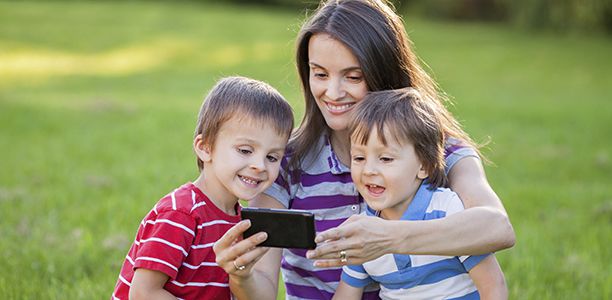Researchers at the Mailman School of Public Health and Columbia University Medical Center studied the impact of text message reminders for the second dose of influenza vaccine required for many young children to protect them against the virus. The findings showed that sending text message reminders both increased receipt of the second dose of the vaccine by the end of the season as well as brought children in sooner to be vaccinated. When educational information on the importance of the second dose of influenza vaccine was embedded into the text messages there was an even greater effect compared both with conventional text messages that only told families when and where to go as well as with written reminder only. Results from the paper are published online in the journal Pediatrics.
The randomised controlled trial was conducted during the 2012-2013 influenza season in three community-based paediatric clinics, affiliated with NewYork-Presbyterian Hospital/Columbia University Medical Center in Northern Manhattan. Children in 660 families were in need of a second dose of influenza vaccine that season took part in the intervention. Most families were Latino and publicly-insured; nearly three-quarters (71.9%) thought that their child was at least somewhat protected from influenza after one dose.
The children who ranged in age from 6 months through 8 years old were assigned into one of three groups: “educational” text message, “conventional” text message, and “written reminder-only” arms. All families had a cell phone with text messaging capabilities. A written reminder with next dose due date was given at the time of the child’s first influenza vaccination to all families.
The results showed that children in the educational text message reminder group were significantly more likely to receive a second dose of influenza vaccine (72.7%) than both those in the conventional text message reminder group (66.7%) and written reminder-only group (57.1%).
“Text message programs like these allow for healthcare providers to care for their patients even when they are not in front of them in the office, somewhat like a modern day house call,” said Melissa Stockwell, MD, MPH, assistant professor of Population and Family Health at the Mailman School of Public Health and assistant professor of Pediatrics at the Medical Center, and principal investigator.
Parents reported liking the text messages and saw them as helpful because they acted as a reminder, provided information in a quick way that did not require talking with anyone, and demonstrated someone “cared.” Nearly two-thirds (60.8%) of parents reported the reminder was either the main reason or part of the reason they brought their child for a second dose, and 70.1% said that it affected bringing their child sooner. Parents also noted they would recommend the text messages to other parents.
Influenza vaccine coverage overall is low among young children and those in need of two doses in a given season are at particular risk, with less than half of those who receive the first dose returning to receive the second needed doses. Dr. Stockwell equates this to wearing half a bicycle helmet.
Timeliness of vaccination is also key, as many children who need two doses are not fully protected until two weeks after receipt of the second dose.
“Even in children who ultimately receive two doses in a season, the time interval between doses is often beyond the recommended 28 days,” said Dr. Stockwell. “This leaves many unprotected when the virus begins circulating.”
Earlier studies have showed that traditional strategies like mail or telephone have not been effective among urban, low-income families—the same population who is at high risk for under-vaccination.
A previous paper by Dr. Stockwell and colleagues looked at the impact of text messaging reminders for first dose influenza vaccination rates in paediatric and adolescent populations. Results of the study showed that message reminders for early childhood vaccination were widely supported.
“This randomised controlled trial provides valuable information for establishing best practices for influenza vaccine text message reminders. Important next steps will be to assess the impact of text message vaccine reminders in other populations as well as for other vaccines.
(Source: Columbia University, Pediatrics)










